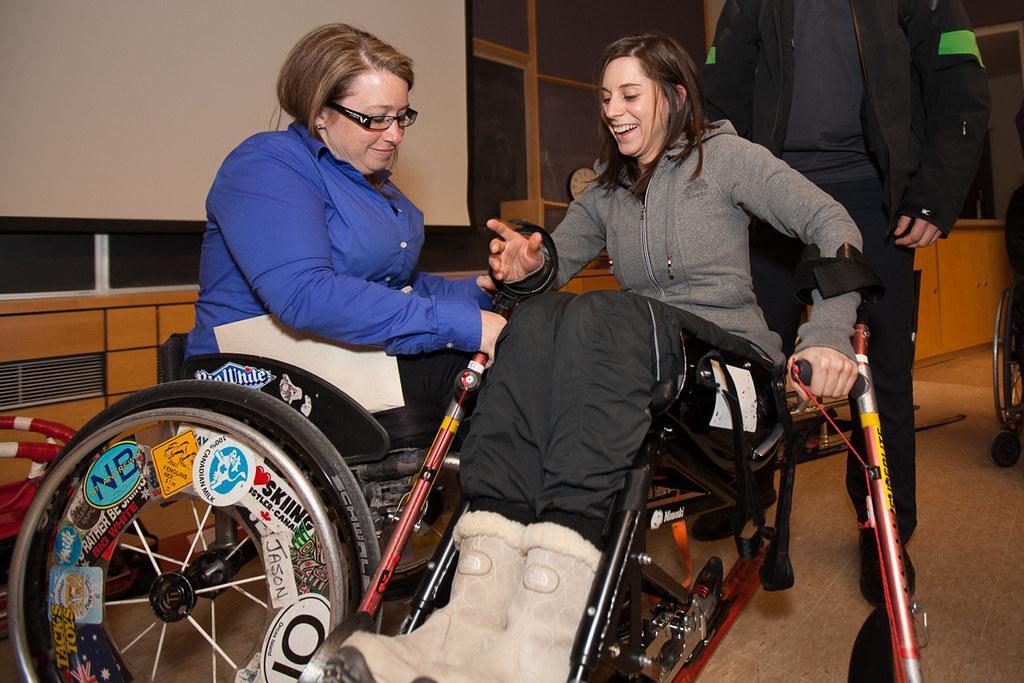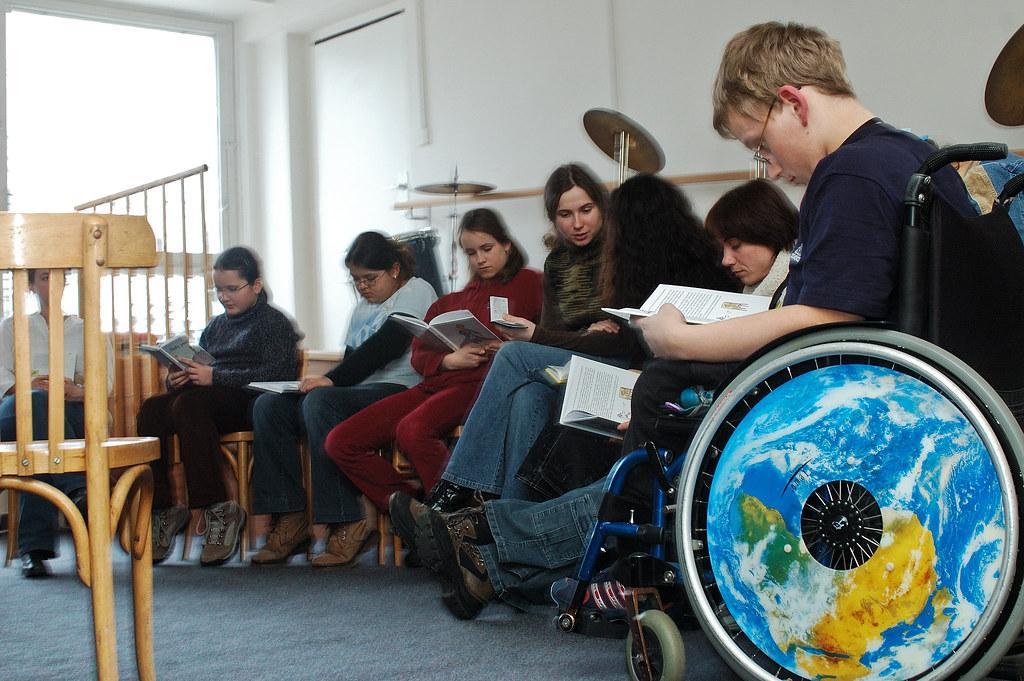It’s quite common for people to become disabled during their college education. In such cases, individuals are either forced to leave their education or apply for Social Security Disability Insurance (SSDI) benefits during their education. But are you able to go to college while on SSDI?
It’s possible to go to college while receiving SSDI. But the Social Security Administration will consider your ability to continue your education and factor it into their decision during your Continuing Disability Reviews (CDR).
Read below for more information on how attending college can affect your SSDI benefits.
Why Going to College is Different than Rejoining Work
If you are able to go to college, it does not indicate that you are able to work enough to provide for yourself. This is especially true if you have a condition such as a mental disability, which fluctuates in severity from time to time, making it difficult to predict how and when your condition will affect your ability to work.
This type of disability may be exacerbated by external stressors, such as a demanding work schedule or changes in the work place.
In addition to that, the requirements of going to work do not typically need to be as hard or stressful as the requirements of working full-time. There are many reasons why academic education doesn’t place the same demands on students as the job market:
- When you’re a student, you normally get to pick your own schedule and electives as well as the number of classes.
- You might be able to “make up the work” if you miss a specific number of lessons, but it will depend on the policies of the school as well as the instructor.
- If your condition worsens and you are unable to complete the course, you have the option to drop out of your classes, defer, or re-take the course.
Classes can be scheduled around your schedule preferences, such as:
- having classes either in the morning or the evening
- attending only afternoon and evening classes, or
- having a timetable where you only go to school every other day (say, Tuesdays and Thursdays) instead of every day.
However, the typical full-time job doesn’t provide such flexibility. But, the claims examiner who is doing your continuing disability review may have a different point of view on the matter.
Note that if you are participating in a Ticket to Work program and attending school as part of the program, the Social Security Administration (SSA) will not examine your claim for medical improvement during this period.
So, Why Does it Matter if You Go to College While on SSDI?

Although the Social Security Administration does not have a rule that specifically prohibits receiving disability payments while simultaneously enrolled in college, the SSA will take this into consideration when evaluating your case.
There are many reasons for this. For starters, even though students may not be getting paid to go to college, they are still engaging in work. The student is responsible for completing all assigned work and maintaining a certain level of organization. They need to show up to class, perform well on tests, and maintain a certain grade point level.
As part of your CDR, the Social Security Administration will evaluate whether or not the reasons you have given for requesting disability benefits are in line with your actual capacity to successfully complete the requirements of a college education.
For instance, if you report to the Social Security Administration that your medical circumstances make it difficult for you to communicate with others, the SSA might question how you plan to participate in group activities, such as attending school.
If you inform the Social Security Administration that your disability makes it difficult for you to sit for lengthy periods of time, the SSA will question how you are able to remain sitting for the entirety of a class term.
The Social Security Administration may assume that you are able to perform the duties of a job if they believe that you are capable of attending college. This could result in the termination of your disability benefits.
You may still find that your disability continues to interfere with your ability to complete college-level coursework. The SSA must have a clear understanding of the ways in which the effects of your conditions set you apart from other students. You might need special help to get through college or require accommodations.
The college’s office for students with disabilities may arrange for you to receive the necessary assistance. You might have to take fewer classes, take tests at a slower pace, be provided additional time to complete exams or homework, attend virtual lectures, or even use a notetaker if you have trouble keeping up with the material.
The Social Security Administration may require documentation of these accommodations in order to verify that your disabilities impact your ability to successfully finish college-level coursework.
Can You Go to College While on SSDI?

It really depends. SSDI is intended for those who are unable to work due to a disability. The Social Security Disability Insurance program provides financial support to disabled workers and their families if the worker meets specific medical requirements.
Social Security Disability Insurance is available to people of any age, including college students. However, in order to be eligible for Social Security disability payments, an applicant must have earned a specific number of work credits and paid into the Social Security Disability Insurance system. In addition, the medical condition in question needs to satisfy the criteria set forth by the Social Security Administration.
While it depends on the specifics of your case, the fact that you are a college student might be detrimental to your disability claim. The Social Security Administration’s primary concern when determining whether an individual is eligible for disability benefits is whether or not the individual is able to participate in particular activities or work.
It is commonly assumed that a person who attends college on a traditional campus, participates actively in lectures, does their homework, and successfully completes extended projects can likewise do well in a low-stress, desk-based position.
Even if you are only attending school part-time, the Social Security Administration may determine that your condition is at least somewhat manageable and that you have the potential to work part-time.
However, there are exceptions that allow certain college students to continue receiving SSDI despite their disability, and these include medical evidence, ongoing treatments, loss of functionality, and other circumstances.
The average time it takes to process a disability claim is 457 days, and that’s is if it’s approved. Even after you have been approved for disability payments, it is possible that it will take some more time before you start receiving them.
To sum up, receiving Social Security Disability Insurance payments while enrolled in college is possible, but the process is lengthy, complex, and emotionally draining for many.
When the SSA Might Terminate Your Benefits
Keep in mind that the SSA has no intention of penalizing you for returning to college. Many people with disabilities find that returning to college is a gateway to a better life. Because of this, you will not immediately be disqualified from receiving assistance if you decide to pursue an education. There are, however, many scenarios in which you could lose your benefits.
1. Your Condition Should Prevent You From Returning to College
All colleges should have facilities that accommodate students with disabilities, so your disability shouldn’t prevent you from returning to college. However, if you receive SSDI based on a condition that should make it impossible for you to join college, then the SSA may start examining your case more carefully.
For instance, if you have a social anxiety problem that is severe enough to make you eligible for SSDI payments, then it should also be severe enough to preclude you from being able to attend a class in which you would be in the company of other people. However, this may be different if the class were virtual or online.
Once again, this will not cause the automatic termination of your SSDI benefits. However, the Social Security Administration will want to know how you are able to continue your education despite your impairment.
You might, for instance, be able to attend lessons online rather than physically going to a classroom. Or perhaps you attend classes at odd hours when there are fewer people in attendance.
2. Your Condition Should Prevent You From Pursuing This Type of Education

This is typically the case with vocational schools. The Social Security Administration will likely terminate your disability benefits if you are receiving them due to a back injury but are going back to college to learn a skill that involves physical labor, like becoming a plumber.
In the end, a lot will depend on why you want to go back to college. For example, manual labor may be out of the question due to your epilepsy, but if you plan on returning to school to earn a degree in psychology, you should be fine.
3. Your College Activities Are Similar to Job Duties
If you spend 30 or 40 hours per week on school-related activities, the Social Security Administration may consider you capable of working full-time. They might make this decision because this period of time corresponds to that of a standard work week.
This will motivate them to look further into:
- How many courses are you currently enrolled in?
- How has your schedule changed as a result of those courses?
- How many hours per week are you spending in class?
It should not be a problem if the total number of lessons you take each week does not exceed two or three. On the other hand, if you sign up for five or six classes that meet twice or three times a week, the Social Security Administration might get a little bit skeptical.
Going to College With an Invisible Condition
People who are mentally disabled often face more scrutiny and a more difficult application process for disability benefits than those who are visibly physically disabled. How often your SSDI will be reviewed depends on several factors.
For instance, if you were granted disability payments based on a mental disorder, such as those listed below, you would most likely be subject to a CDR every three years:
- depression
- bipolar disorder, or
- a mental deficiency
However, if you’re claiming disability due to a physical condition like Parkinson’s or a spinal cord injury that isn’t expected to improve, you may only undergo a CDR every five to seven years.
While it is true that Social Security does not have a rule that prohibits you from going to school, the fact that you are a full-time student can work against you during a CDR if you have a disability that cannot be quantified using objective testing such as X-rays or blood tests. Some examples of disabilities that fall into this category include:
- lupus
- fibromyalgia,
- anxiety disorder
It may be in your best interest to keep quiet about your full-time education if you are receiving SSDI or Supplemental Security Income (SSI) due to a mental condition or another “invisible” impairment during your evaluation. The disability examiner looking over your case may immediately assume that you are no longer disabled according to Social Security’s standards if you are able to return to school.
Other Programs That Help During College
The U.S. Department of Education (DoED) is the best place for anyone looking into college funding options. The Department of Education offers several federal aid programs for college students. Get in touch with the Federal Student Aid Information Center at 1-800-433-3243 or visit their website for further details.
There are also a lot of options that are especially tailored for students who have some kind of disability. Here are a few that you may wish to learn more about:
- Foundation for Science and Disability Science Student Grant Fund
- Paul G. Hearne Leadership Award
- INCIGHT Go-Getter Scholarship
- Google Lime Scholarship
- NBCUniversal Tony Coelho Media Scholarship
- CIA Undergraduate Scholarship Program
Conclusion
So, while it is possible to go to college while on SSDI, you may find yourself in a difficult situation during a CDR. If a claims examiner finds that you are capable of working a full-time job, the SSA may even terminate your benefits. If you’re a college student whose benefits have been terminated, you may want to get in touch with a disability attorney to help appeal your case or contact the SSA to learn about your options.


